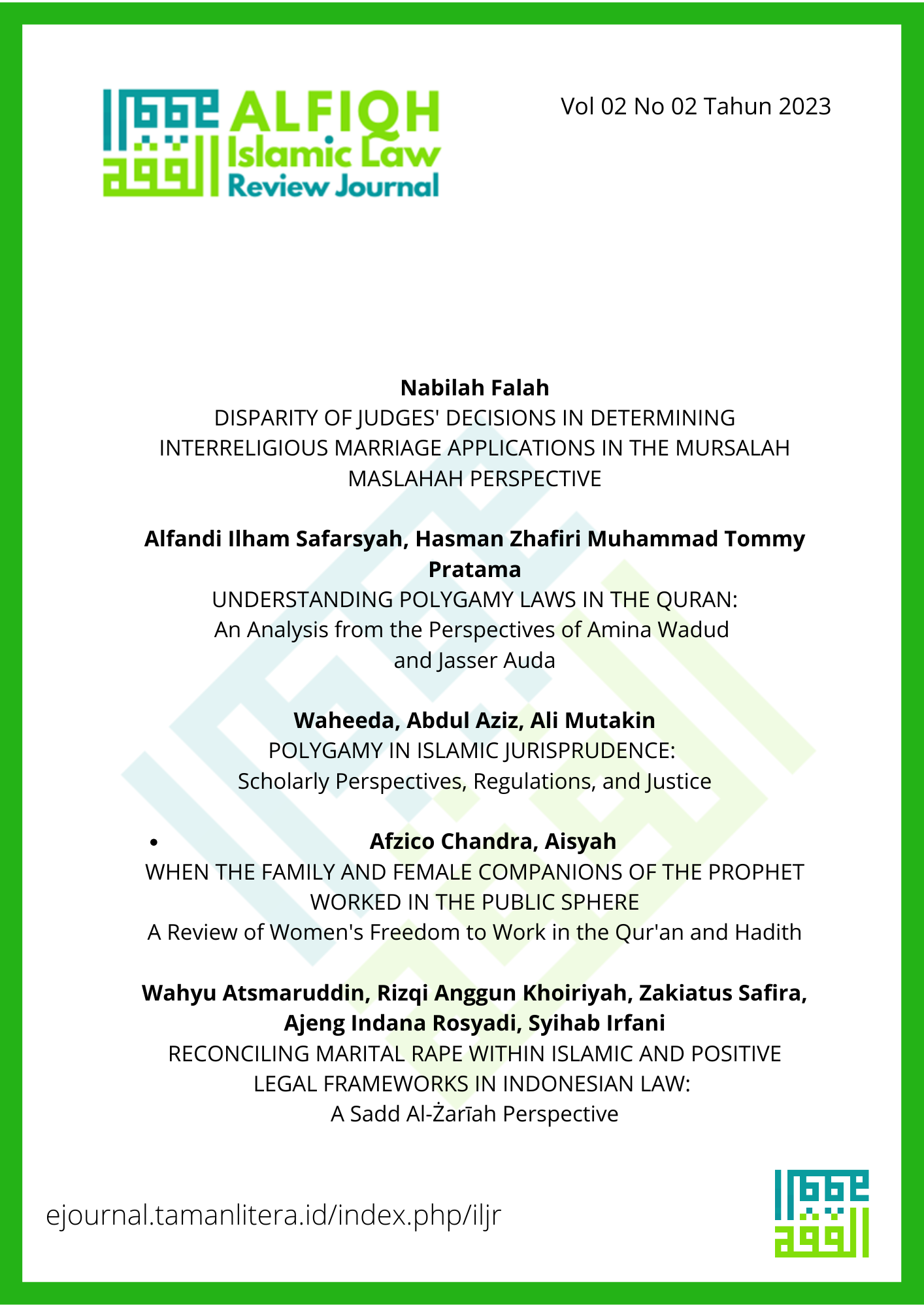POLYGAMY IN ISLAMIC JURISPRUDENCE
Scholarly Perspectives, Regulations, and Justice
Keywords:
polygamy, Islamic law, Islamic scholars, regulation , justiceAbstract
This study analyzes the debates and differences in scholars' perspectives regarding the regulations and laws of polygamy in Islam. The urgency of this research lies in the intricate debates involving varying polygamy requirements, ranging from lenient to strict, and views that prohibit it except in specific situations as rukhshah (dispensation). Islamic law does not outright prohibit or mandate polygamy but rather regulates the practice for individuals who meet the specified criteria. The research methodology entails literature analysis, comparison of scholars' viewpoints, and exploration of polygamy practices within society. Research findings reveal numerous instances of polygamy that do not adhere to the principles of justice and well-being in Islamic law. The research implications underscore the need for a deeper understanding of Islamic polygamy laws and how its practice can align with legal principles. This study also aids in comprehending how scholars' perspectives influence polygamy practices. With improved understanding, it can encourage more aligned polygamy practices with Islamic law and raise awareness about the importance of justice in polygamous relationships, enhancing the general understanding of this practice within society.
Downloads









